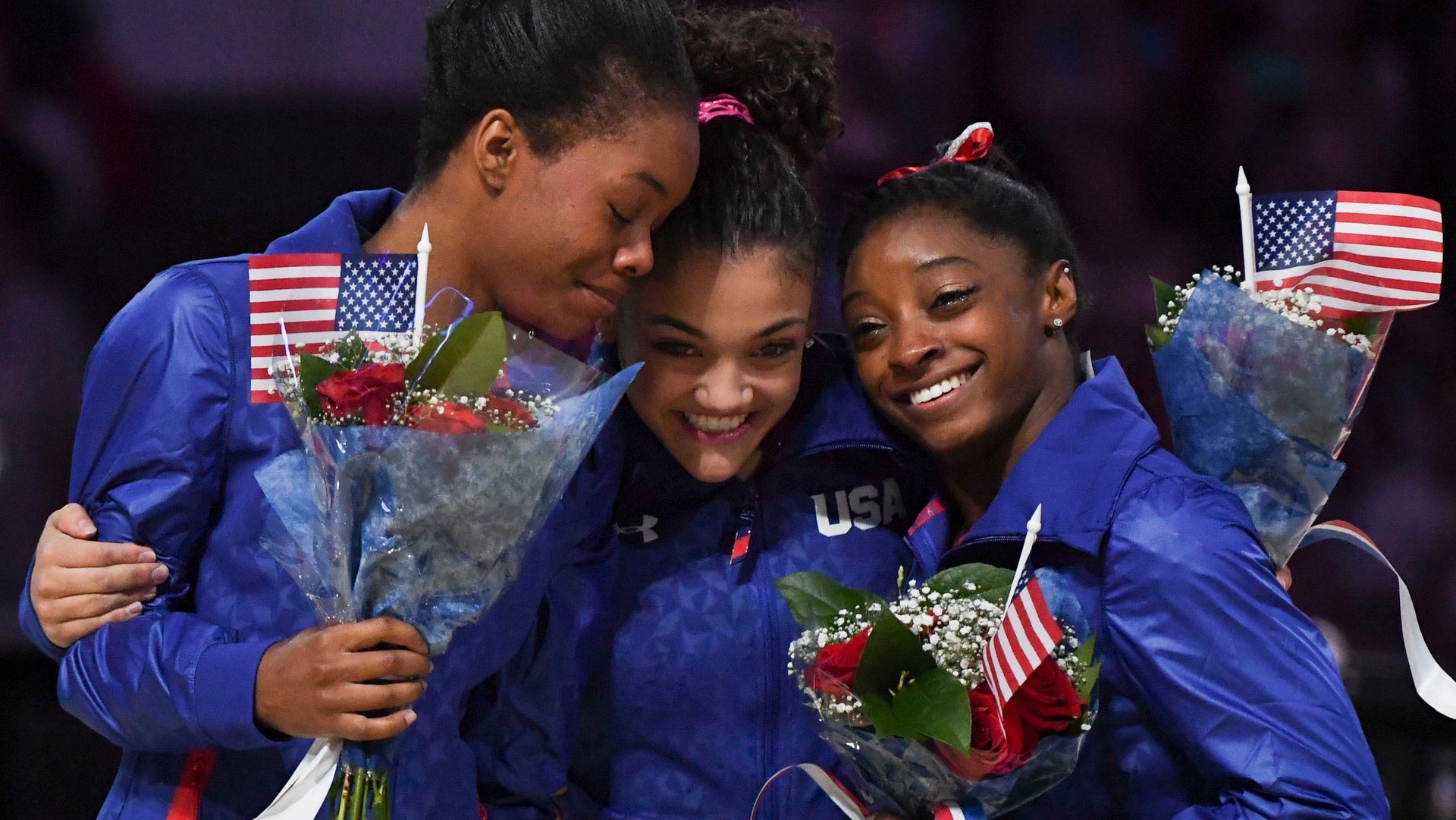In troubled times, we need the healing power of Simone Biles, Serena Williams, and black girl magic
Last week felt like it lasted a year. The trauma and tragedy just kept coming in waves; at times it felt like we might never find the space to breathe again.


Last week felt like it lasted a year. The trauma and tragedy just kept coming in waves; at times it felt like we might never find the space to breathe again.
After the back-to-back killings of two black men by police dead followed by the killings of five police officers in Dallas, many wondered if this was the final breaking point. Then as if by divine intervention we found a bright spot—or rather three, to be exact: Serena Williams, Simone Biles, and Gabby Douglas.
These amazingly talented athletes made for a sparkling weekend—Williams was a two-time winner at Wimbledon, and both Biles and Douglas shone at the US Women’s gymnastic team trials. While significant in their own right, these accomplishments symbolized much more than just athletic proficiency. All three women proved the enduring spirit of black people. Our community has been tested time and time again and yet still we find the strength to rise.
Williams’ entire career has been plagued by racism, sexism, and body shaming. And yet, she has remained at the top of her game for the better part of the decade. Beyoncé’s song “Sorry,” in which the tennis star exquisitely twerks and twirls her stunning body might as well be her anthem.
In a speech at the 2015 Sports Illustrated Person of the Year award, which was also plagued by controversy, Williams said this:
I’ve had people look down on me, put me down because I didn’t look like them—I look stronger. I’ve had people look past me because the color of my skin, I’ve had people overlook me because I was a woman, I’ve had critics say I [would] never win another Grand Slam when I was only at number seven—and here I stand today with 21 Grand Slam titles, and I’m still going.
Her speech was captivating because it highlighted the unforeseen barriers so many African Americans face in their daily lives—no one is exempt, not even superstar athletes. All of these obstacles seem surmountable, however, while watching Serena serve an ace at 160 mph. With speed and grace her serve cut through the haters on the way to yet another Grand Slam and a place in the history books. Watching her perform at the level gives us all hope.
Simone Biles, who has been named the woman to watch for the 2016 Rio Olympic Games, has shown herself to be every bit the embodiment of black girl magic. (We call ourselves magic because it takes whimsy, gall, and perseverance to excel in a world that works tirelessly to make you invisible.) Watching her glide through the air and nail each and every tumbling pass gives wings to all of us who have ever felt clipped and deflated by constant struggle and heartbreak.
As Amandla Stenberg asked, “what would America be like if we loved black people as much as black culture?” What would it look like if we celebrated the beauty and fullness of black women’s bodies the way we do those who use injections to mimic us? What if it didn’t take 40 years to acknowledge the talent of a black lead actress on TV? What if black women weren’t paid 58 cents to every white man’s dollar and white women’s 77 cents? What if black lives really truly mattered?
When we watch and cheer for these beautiful black women athletes and their excellence, we are rooting for ourselves. When we see these women celebrated for their achievements on the covers of Vogue, Glamour, and Essence we cheer for them just as we would cheer for ourselves. We are cheering so that our joy may drown out the black tragedy porn playing everyday on the cable news cycle. We want our champions to hear our applause and use it as a protective barrier between themselves and the rest of the world.
The past few weeks have shaken the black community to its core, again, and again left us searching for answers as well as hope. Amid the trauma, the beautiful, black champions reminded us that we are powerful, and we are worthy. As Williams recited in a BBC UK Sport video after winning her 22nd Grand Slam, “and still I rise.” Yes we can, and yes we will.